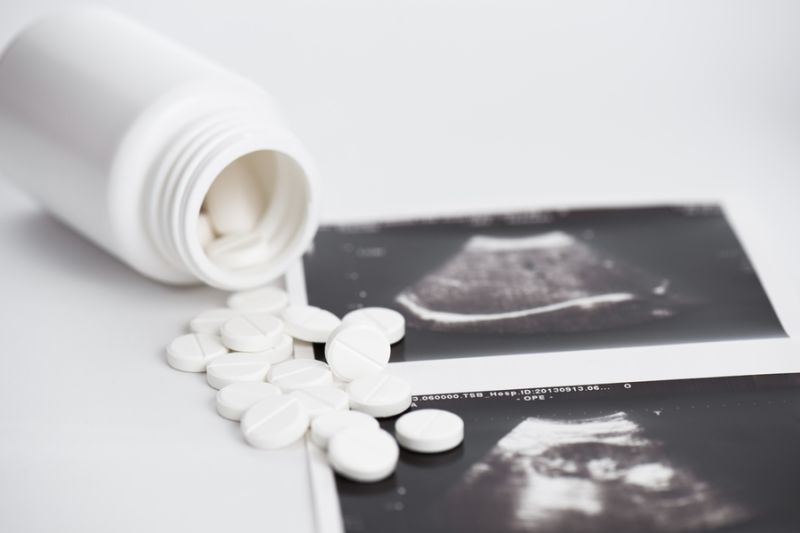
Washington, D.C. Newsroom, Feb 15, 2023 / 16:25 pm (CNA).
Several Catholic organizations are making their voices heard in the legal battle against the Food and Drug Administration’s approval of an abortion-inducing drug by signing onto an amicus brief in a lawsuit against the agency.
Mifepristone, which the FDA approved in 2000, can be used to abort a preborn child up to 10 weeks of gestation. Although a prescription is needed, a person can receive a prescription for the drug without having any in-person care and obtain the drug in person or through the mail.
A pro-life health organization, the Alliance for Hippocratic Medicine, filed a lawsuit against the FDA in Texas, which claims the FDA failed to abide by its legal obligations when approving the drug. The group is represented by Alliance Defending Freedom. The lawsuit alleges that the FDA never studied the drug under its current labeled conditions of use and “ignored the potential impacts of the hormone-blocking regimen on the developing bodies of adolescent girls.” It also states that the agency disregarded evidence that chemical abortions cause more complications than surgical abortions.
The lawsuit further alleges that the FDA recently eliminated certain safeguards. In January, the FDA changed its rules to permanently allow mifepristone to be provided through the mail, which the lawsuit claims is a violation of federal law. In January, the FDA also approved the sale of mifepristone through pharmacies if they receive FDA certification. The FDA has not granted any certifications so far, but the pharmacy chains CVS and Walgreens are currently working with the federal government to get approval.
According to the lawsuit, ending these safeguards increases the risk of forced abortions and “helps sex traffickers and sexual abusers to force their victims into getting abortions while preventing the authorities from identifying these victims.”
According to the Guttmacher Institute, chemical abortions make up more than half of abortions in the United States. Those who perform chemical abortion commonly use a combination of mifepristone and misoprostol, with the latter being less regulated. This means the court ruling could drastically change the abortion landscape in the country.
An FDA spokesperson declined comment on the litigation.
Numerous pro-life organizations, 67 members of Congress, and nearly two dozen state attorneys general have signed amicus briefs, also known as “friend of the court” briefs, in support of the Alliance for Hippocratic Medicine lawsuit. Several Catholic organizations have recently joined the fight against the abortion pill.
“We think that there are very serious ethical issues of informed consent not being properly obtained in providing abortions through mifepristone,” Joseph Meaney, the president of the National Catholic Bioethics Center, told CNA. “Abortion is never ethical, but it is even worse to do it in ways that endanger those seeking it.”
The National Catholic Bioethics Center was one of several Catholic organizations that signed onto an amicus brief with Susan B. Anthony Pro-Life America. This includes the Catholic Bar Association, the Catholic Benefits Association, and the Catholic Health Center Leadership Alliance.
“A woman or girl cannot consent to a chemical abortion without knowing the specific risks that mifepristone poses to her life, health, and fertility,” the brief reads. “Voluntary consent is essential to genuine informed consent. Consent obtained through coercion is no consent at all. Abortion-inducing drugs are inherently different from other prescribed drugs because of the increased risk that women may be coerced to abort their children.”
The brief alleges that “informed consent cannot be properly obtained” because the FDA did not study the “safety of the drug when used by patients outside of a clinical trial. It adds that “post-marketing restrictions do not require reporting of non-fatal adverse events and both FDA and mifepristone’s sponsors have failed to demonstrate that mifepristone’s adverse events can be reliably reported by other means.” It also states that mifepristone is not an effective treatment for an ectopic pregnancy, but that removing the in-person requirement means doctors “are unable to adequately diagnose ectopic pregnancy.”
In addition to these safety risks, the brief alleges that the risk of forced abortions “is greatly increased by the removal of the in-person dispensing requirement” because “without in-person care, prescribing health care providers cannot adequately determine whether the patient is giving free consent without coercion or duress.”
If you value the news and views Catholic World Report provides, please consider donating to support our efforts. Your contribution will help us continue to make CWR available to all readers worldwide for free, without a subscription. Thank you for your generosity!
Click here for more information on donating to CWR. Click here to sign up for our newsletter.




If only Catholics fought this hard against The Pill they might not be having to fight “Plan B.”